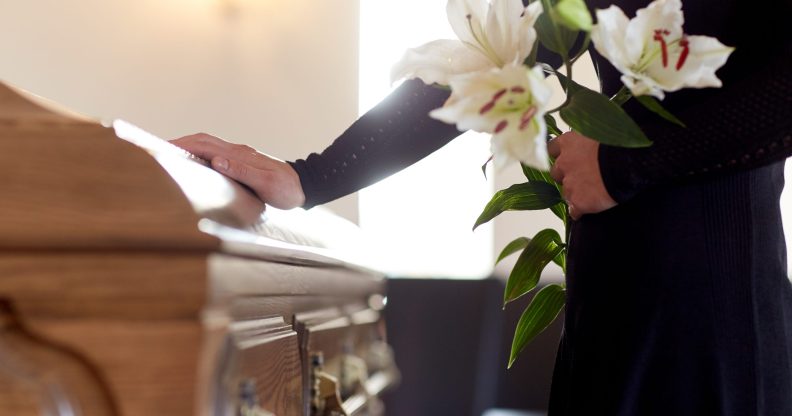Queer Israelis must battle ‘institutionalised homophobia’ to receive basic benefits when their partners die

Bereaved LGBT+ spouses are not supported by the state, activists say
Married LGBT+ Israelis are faced with “suspicion and mistrust” from state authorities when they try to access spousal benefits after their partners die, activists warn.
Same-sex marriages are not performed in Israel, but the law does recognise same-sex marriages performed in other countries. As of 2008, same-sex couples are able to jointly adopt children together.
Israel’s National Insurance Law offers a host of provisions for widows and orphans in the form of survivors’ benefits – but the law doesn’t apply to same-sex couples, meaning they must wade through a sea of red tape while in mourning.
Michal Eden, an attorney and leading LGBT+ activist in Israel, has witnessed this struggle all too often.
“In an LGBT+ family, when one of the spouses dies the remaining spouse is often forced to deal with suspicion and mistrust by the authorities, which often doubt whether a family constellation even existed,” she told Zman Yisrael.
“I see widows who, instead of grieving, have to go to court to prove that they were part of a couple and get the rights they deserve. Even in financial bodies, I see a lot of institutionalised homophobia.
“They make it very difficult, asking questions like ‘How did you meet and under what circumstances?’ Heterosexuals are never asked these kinds of questions.”
Same-sex couples and other Israelis unable to marry under Orthodox law can be issued with a “domestic union” card, which entitles couples to the same legal status and rights as married couples.
But even with this card, many LGBT+ widows and widowers struggle to receive their rights under the law, and must shoulder a burden of proof that straight couples are simply not asked for.
Married lesbian couple Nitzan and Meital Itamari-Kruani both had this card when Meital was tragically killed in a car accident just outside their home.
As if this wasn’t devastating enough, Nitzal then faced a bureaucratic nightmare just to prove that her relationship with Meital was real. The process was “exhausting, and required I prove that we were, indeed, a couple, every step of the way,” Nitzan told Zman Yisrael.
“I had to hire a lawyer to get this recognition [as a widow], because this process isn’t automatic, even though we registered with the National Insurance Institute.
“I received a one-time payment of survivors’ benefits and a professional training stipend because I have no [university] degree and no profession. Now I’m fighting with private insurance and with her workplace because they don’t acknowledge I was her spouse,” she said.
I’m not listed as a widow anywhere. My ID still says I’m single.
Her experience is echoed by countless other LGBT+ couples, who feel their government does not support them or their children as they struggle through the most difficult period of their lives.
“I’m not listed as a widow anywhere. My ID still says I’m single,” said Omra Levi Hazan, who lost her spouse shortly after giving birth to their daughter. She had to prove that both of their two children were orphaned so that they would be eligible for survivors’ benefits.
“Widowhood is somewhat ignored within the LGBT community as well – there are no support groups or any other type of recognition for this state,” she added.
It’s a clear indication that the ‘phenomenon’ of LGBT+ widowhood still has yet to garner sufficient recognition by the Israeli state or society.


